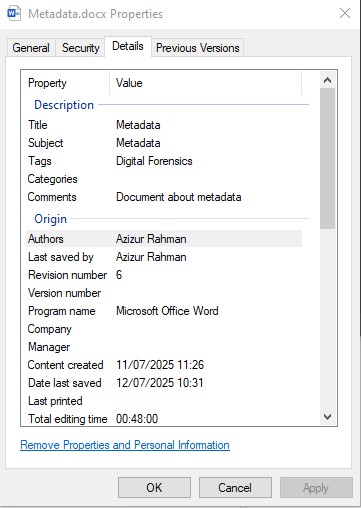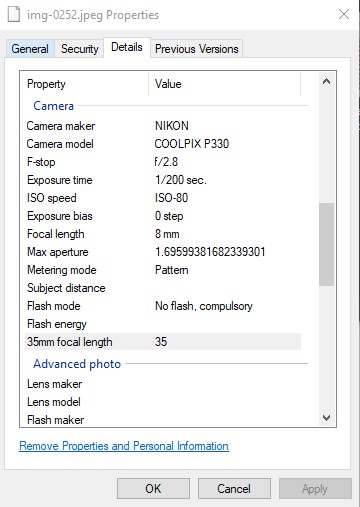Understanding Metadata
An explanation of metadata and where it can be found.

What is Metadata?
Metadata gives us information about data. This information can contain the following:
- When the data was created and modified
- The title and description
- Geolocation of where the data was created
- Who created the data, and who can access it
- What device or software was used to create the data
- Tag and categories
Document Data
Software will automatically add metadata to files when they are created and saved on a computer.
Microsoft Word will add the following by default:
- Program name
- Creation date
- Date last saved
- Authors
- Last saved by author
- The computer on which the file was saved

All other metadata can be added and removed through Microsoft Word, such as:
- Title
- Subject
- Tags
- Categories
- Comments
- Status
- Company
Some of the default metadata can also be removed through Microsoft Word or other tools.
Photo/Exif
Photos can contain a lot of personal information if Exif data is turned on. Exif stands for Exchangeable Image File Format and can contain the following metadata:
- Filename
- Device Make
- Device Model
- Geolocation
- Date and time the photo was created
- Lens
- Exposure
- Resolution

For a full list of tags, see the following link https://exiv2.org/tags.html
Devices can be set to turn off Exif data when taking photos - most modern smartphones have this feature.


